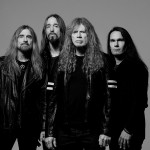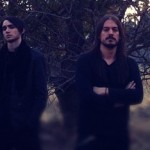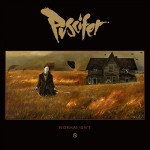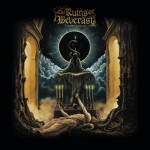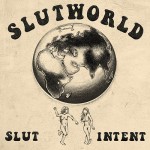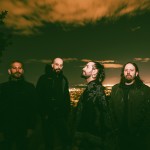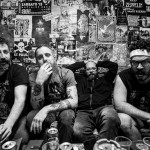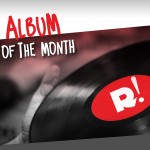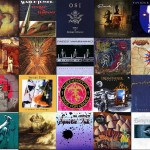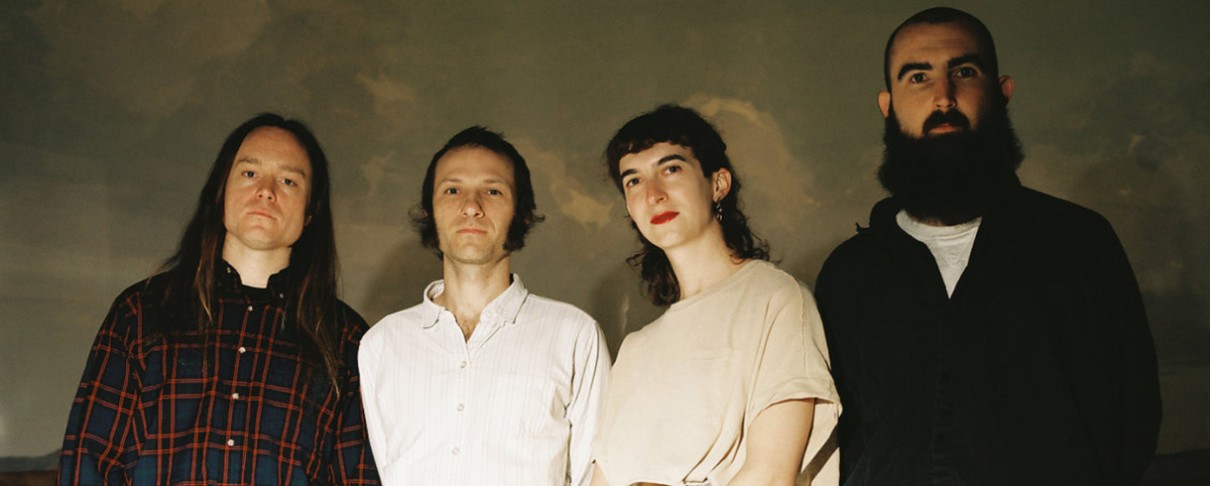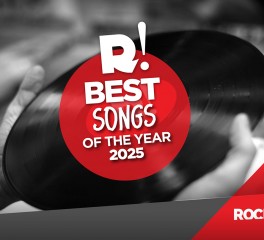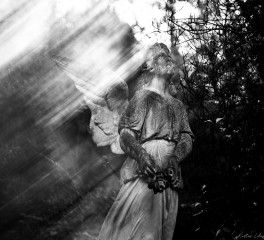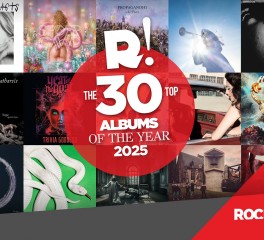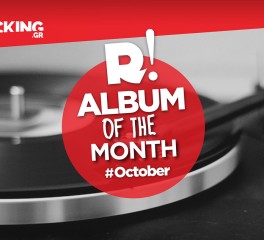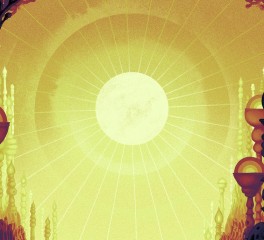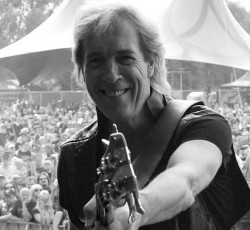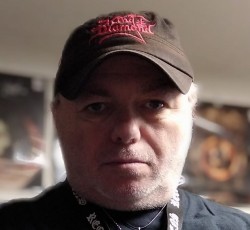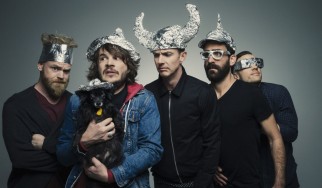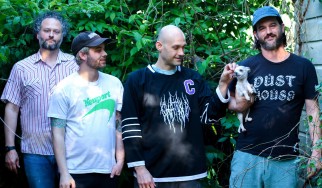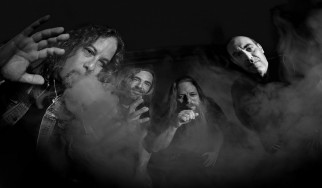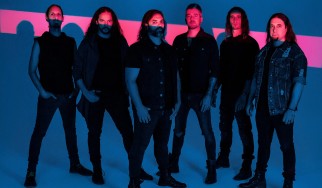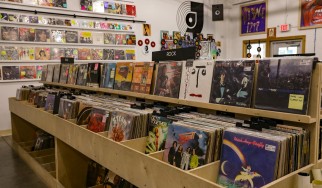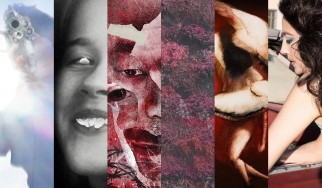Agriculture: "In Black Metal, you can do whatever you want!"
The subversive black metal band in an in depth interview
In this music review corner of the internet, we like it when we hear albums and bands that shake up established musical forms. It doesn't have to be the most experimental offering, but we can't resist clever compositions, unexpected musical elements, and multifaceted themes. For all these reasons, and some more, we loved the second album by the American band Agriculture, and we selected it as the top music recommendation for October.
As expected, we jumped at the chance to interview Dan and Leah, Agriculture's main composers and lyricists, to see how they approach black metal scene, where they draw their inspiration from, how they filter their art through their worldview, and what they think about the musical landscape as it is shaped in the age of streaming.
Questions: Antonis Kalamoutsos, Irini Tatsi, Manos Kornilakis – Orfanoudakis
Interview: MKO
Photos: Agriculture's Facebook profile
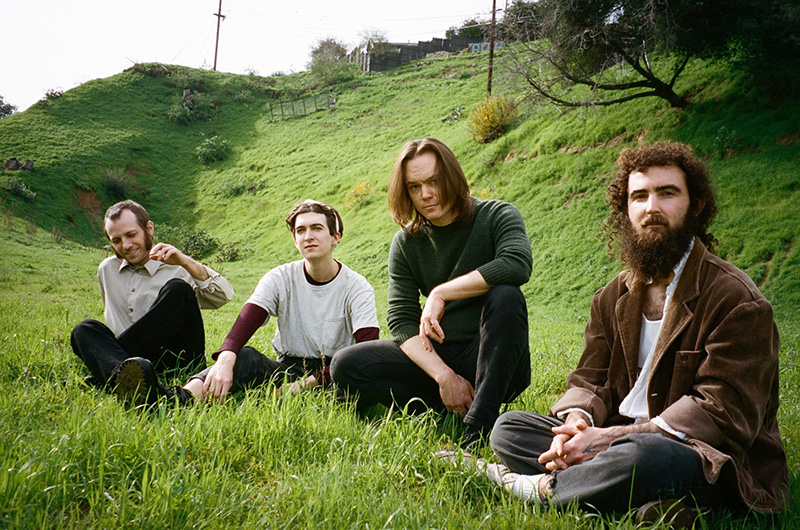
Good evening, Leah, hello!
Hey, how's it going?
It's going great. How are you?
Good.
Great, great. Can you see me? You can hear me just fine?
Yeah.
So let's start, let's begin. My name is Manos. It's short for Emmanuel, so you can call me Manos. I'm very glad to have this opportunity to speak with you tonight. Let’s start things off with some general questions regarding both your band and your art. You use the term "ecstatic black metal". Where did this idea come from?
It came from our interest in black metal, our love for metal music, and our feeling that it inherently operates on extreme feelings, like big feelings that are similar to spiritual experiences. You know, that sort of extremity similar to practices of meditation, stuff like that, which are also very extreme experiences. We want to highlight that aspect of it. People think it might mean happy or something like that, but it's more than that. It's a feeling of almost, like, overwhelm. That's really where we're coming from with that term.
Are you only referring to that as a listener or as a performer as well? Is there an ecstasy you could describe while performing it?
Yeah, I think. I mean, a lot of our music can be pretty challenging as a performer: whether it's physically challenging, like tremolo picking, blast beat, screaming, stuff like that. But it can also be mentally challenging. Some of our songs are seven to eight minutes long and they barely repeat themselves. And, you know, when you're going through that process of repetition it takes to learn songs like that, it engages your focus along with physical activity. Ιt can really bring you to a heightened state of performance and playing. Obviously, we do get more comfortable with playing our songs, and then time has come again to write new music that challenges us in different ways. But yeah, I think that's an aspect of it for sure.
While performing, I’m so focused, that I’m forgetting about a lot of my more physical self
Is there a therapeutic or a cathartic aspect to that as well?
Um, I'm not sure. I mean, I've been a musician for so long that I don't necessarily… I don't notice what it's doing, because it's just a part of my daily life. But if I go without playing and if I go without playing music with other people, then I definitely notice it. That was something I learned during the COVID lockdown: Oh, I really feel a lack when I'm not playing music with other people or when I'm not screaming or singing or anything. But yeah, I don't know.
The other thing that question makes me think is, sometimes I'll be on tour, and I have some sinus thing acting up, it could be a sinus infection or allergies or something like that. It can bother me all day, and then I go to perform and it's not an issue. I'm not even thinking about the fact that I might have a runny nose or something like that. That's an interesting experience too. It's like there's so much focus and energy just put into the music that these different bodily functions just separate of those needs in a way.
Okay, like your body reacts to the whole experience as well. It locks in.
Yeah, and performing specifically becomes this space where I'm just so, so focused on the activity, that I'm forgetting about a lot of my more physical self.
That's very interesting! Okay, and speaking of terms and names and labels, where did the idea for your band’s name come from, "Agriculture"?
We all have different answers for this, but to me, I like that it historically attaches to agriculture being a major economic and technological revolution and that period being a time that we associate a lot with metal fantasy, you know, swords and sorcery and medieval imagery and stuff. Honestly, it's kind of a funny play on that. There's also themes of cultivation, growth, food, all these things. But we also just like the way it sounds we like the way it looks and and that's a big part of it too, so I think it's pretty open to interpretations.
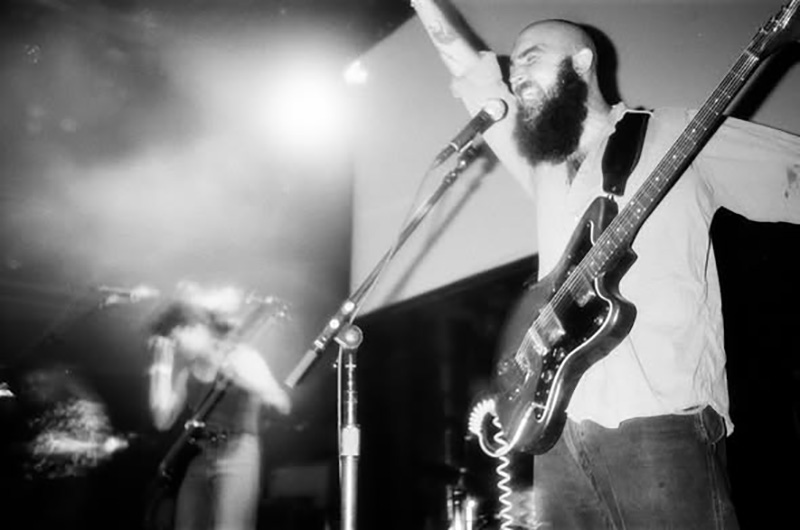
You speak of the imagery of medieval times, and you bring me to the next question about black metal and its aesthetic. I would like to ask what black metal means to you, what it symbolizes, both musically but aesthetically as well. I see Daniel is also waiting. I'm going to admit him.
Cool.
Hello Daniel! How are you?
Dan: I'm good, man. I swear to God, I hate Delta. I was trying to do two things at once where I was on hold with Delta and I was also going to join the interview. I'm trying to get all these points from all the flights. But this is irrelevant. I'm fine. Thank you. How are you?
I’m pretty fine. Thank you! As I told Leah earlier, I'm really glad to have this opportunity to talk with you and have this very interesting discussion. Would you like to hear the question I just asked?
Leah: It's a good damn question, actually.
Dan: Yeah. Okay.
It's about black metal in general and what it means to you both musically and aesthetically.
D: Cool. Great question. Yeah, I mean, I like it a lot. Um… The thing that I've said previously is – oh shit, Delta's calling me. I'm so sorry, you guys. This is so stupid. (He leaves the room again)
Black metal music takes me to a point of extremity that I don’t get to experience otherwise
Okay… Leah, would you like to take the torch from here?
L: Yeah. I relate to metal more broadly. I do like a lot of black metal, but I really got into metal through grindcore and death metal and stuff like that. What a lot of metal music I love does is that it takes me to a point of extremity that I don't really experience otherwise, you know? This state of losing myself in a sensory experience. I also get this from harsh noise music and it feels like it opens something up for me, that becomes an experience. It can be kind of comforting. It feels like a warmth to me in a way. And I think that's also something a lot of people do experience with black metal, where it's such a repetitive, and overwhelming, and dark music, that that sort of complexity and intensity combined can really put you in a state of reflection. I think that can be really powerful. Also, it's exciting music. When you see a metal band live, it's some of the only times you get to see people working that hard to make such an overwhelming display of sound. And yeah, so I think it's a lot of that.
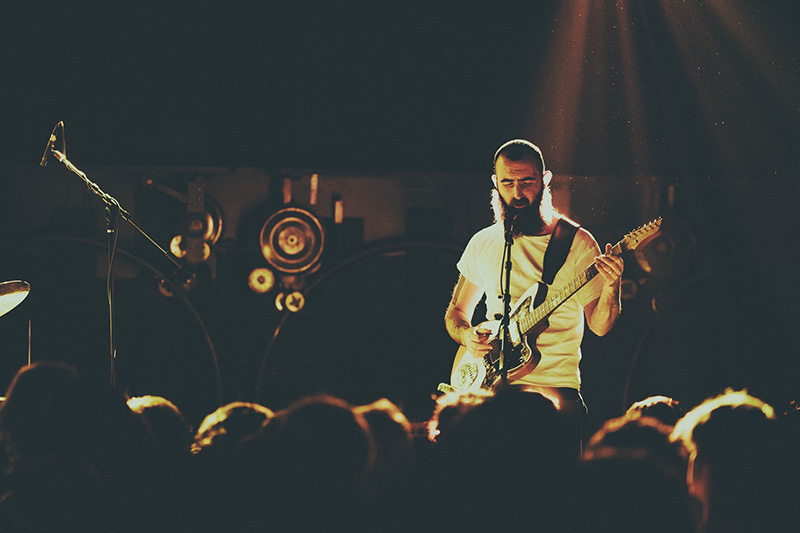
Okay, you're describing something – at least that's how I get it – like a transcendence through the music, becoming something other than yourself. I don't know if that's how you mean it.
L: Yeah something like that, yeah. Listening to an album with headphones on and closing my eyes and just… especially with a lot of extreme metal, without even knowing how much time has passed or how many songs have been played or anything. You really lose yourself in the experience of it and in a sense of time, in a way that can be really amazing.
Well, Daniel's back.
D: I disagree with everything Leah said. And in fact, I think that everything she said is offensive! No, I didn't hear anything that Leah said, of course. I'm sure what she said is right. Sorry about that, Manos. I really apologize.
It's okay, Daniel. I understand you have many responsibilities with the PR and many things to balance, so it's okay, truly. Would you like to take the next question, perhaps?
D: Sure, I'd love to. Thanks.
We felt we had made a challenging album, and we weren’t sure how people were going to respond to it
It has to do with your newest release, "The Spiritual Sound". Let me just say that here at Rocking.gr we love this album. It's really one of our favorites from this year. We know we are not the first ones to tell you that. But so far, how do you feel with the response you're getting? Is it rewarding? Did you expect it?
D: Yeah, it's been pretty astounding. We're so thrilled about it! We felt, after we made the record, that we had made a kind of challenging album and we weren't totally sure how people were going to respond to it. And yeah, Leah, Jonathan, who runs the Flenser, and I spent a lot of time talking about how to write the press release to really frame this for people in a way that makes sense, in a way that provides some kind of foundation for maybe how to approach the record. Because there is so much that's going on, we're throwing so much at the listener, in a way that's not totally expected in metal. Usually, in a metal record, you kind of know what you're going to get. But, at the same time, we didn't want people to think that we were doing a prog Odyssey or something like that. We felt like we were doing something specific and also a little bit challenging. We weren't totally sure how people were going to respond and when the first reviews started coming in, we're like, "oh shit, we were tripping for no reason!"
People really seemed, on an intuitive level, to vibe with what we were trying to do, which was really, really rewarding for us. And again, we've played a few shows now where we're playing mostly stuff from the new record and it's been nerve wrecking. I felt like our live show was working really well before and we have all these new songs and it's like "oh shit, are these going to bang or is there going to be a dead space when we play the new ones?" Because we've all been to shows where the band starts playing their new material and it's like "yeah, great" (said with a mocking voice). And then, you know, everybody's just kind of waiting.
Cold stares only…
D: Exactly! Yeah! And you never know, but it's been really rewarding. People are down to go with us wherever, which I think is really exhilarating for what we can do with the next record. We can actually do whatever we want and trust our listeners, who generally kind of engage with it curiously.
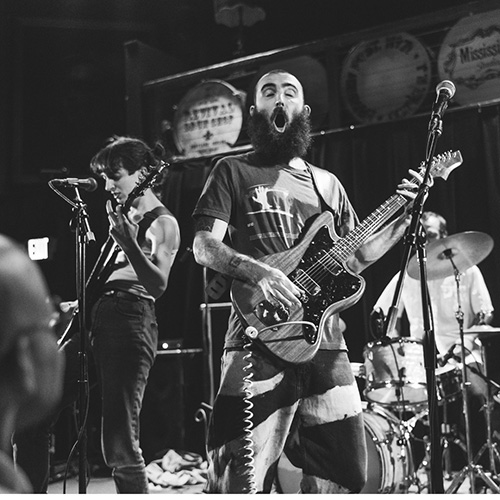
Well, it's interesting that you bring it up because that's what I wanted to ask you. You have many faces on the new album, so I wonder if you're interested in picking up some of the ideas that you had for it and expand on them. Or if you’ve left anything on the cutting floor, if you have a specific element that you want to zoom in for the next release. I know it's early to ask, but I’m gonna do it either way…
L: Yeah, we’ve definitely talked about expanding on different moments on the album and synthesize things, to bring things together and explore, sit on ideas a bit more. But we really don't know at the moment. That's kind of exciting. We have some material, but you know, when you're thinking about a full album, there's a lot of music we get to make.
There’s not a straight line between where you start out influence-wise and where you end up
Okay, it's understandable. There are many genres that you blend in the new album, there is a huge amalgam of ideas and sounds and soundscapes. I have to ask, what are your influences? What things did you want to channel in this release?
D: Yeah, that's a really, really good question. My experience with writing music is that there's not a straight line between where you start out influence-wise and where you end up. So, the phase between visualizing and reflecting on a record and thinking about it – for me, it is quite similar to taking walks and having music playing in my head and thinking "okay, how does that work?". And that's where the influence is really steep and you kind of marinate in it. But then, what comes out, marination is maybe… Marination? Marinating? Anyway, I don't know. "Marination" is maybe a good metaphor for how it works. It's like you put a big piece of steak in some kind of sauce and it looks gross and whatever, and then you put it in the oven and what comes out actually looks nothing like the raw flesh in saucy water that you left it in for several days. But of course, that's what gives it all of its flavor. That's maybe how we wear our influences as well. There's a lot of stuff Leah and I in particular we're talking about and sending ideas back and forth. Musically, for sure, it's always Bob Dylan for me, more than anything else. Definitely My Bloody Valentine was a really big influence here. Who else? Who did we talk about? Wiegedood. You know that band?
Yeah, of course. Wiegedood.
L: Yeah, I totally agree with that. I think the funny thing about influences is you can set out to do something inspired by someone in particular or, you know, take off of some specific influence, but chances are you're going to hit a detour because, you know… Some of the moments on the album, I was really influenced by Entombed, and their first album and I could write things that to me were influenced by them, but we're not Entombed and we don't sound anything like Entombed. So it's kind of a gift that you get detoured, and things start to change and morph, and then it naturally becomes our own version of that thing. I think that happened a lot through the album. All of our influences are so intermingled that we don't even know who we're pulling from something because it's just deeply a part of our musical DNA a lot of the time.
Music is more powerful when you allow a listener to make the connection for themselves
So it's a starting point and then who knows where you're going to get? I'm really glad that I have both of you here as the main lyricists and composers, because I want to dive into the themes of the album. We find spirituality, we find identity, and while listening to the record, while delving into it, I played with the idea that both themes are connected with fluidity and indeterminacy. And I don't know if you would agree that there is not a true self somewhere under all the clutter of everyday life and experience, or that there's no certainty about identities, there's no certainty about life in general. I would like to hear you talk about these topics that you seem very invested in.
D: What a great question! By the way, where are you from, if you don't mind me asking?
I'm from Greece.
D: Wow, your English is just extraordinary. Thank you so much for speaking English. It's one of those things that I try not to take for granted that it's so kind that you happen to speak our language, thank you for taking the time to talk with us. That's a great question.
So, we didn't talk a lot about connections between the thematic material that we were working with, because I think that Leah and I share a sense that music is more powerful when you allow a listener to make the connections for themselves. I think that's true from my experience with works of art generally, as I prefer to be placed in a particular setting, rather than having a tour guide around it. To make the connections myself. And I think, especially in extreme music and metal, where a lot of the lyrics are not audible, or legible at least, you have to read them to know what we're saying, it's important to afford a listener the opportunity to engage with meaning in different ways. Especially when you're talking about things that, like you said, are as ungrounded or maybe unfixed as spirituality and identity, right? The fluidity of those two things is something that you want to give people, or we wanted to give people, a lot of space to wiggle around in. So, in terms of us making those connections, we didn't do that. One thing I've shared in the past is that I still don't know what all of Leah's lyrics are for the record. You know, I've read them, but I don't know them off the top of my head. And I didn't know them at all until I read them.
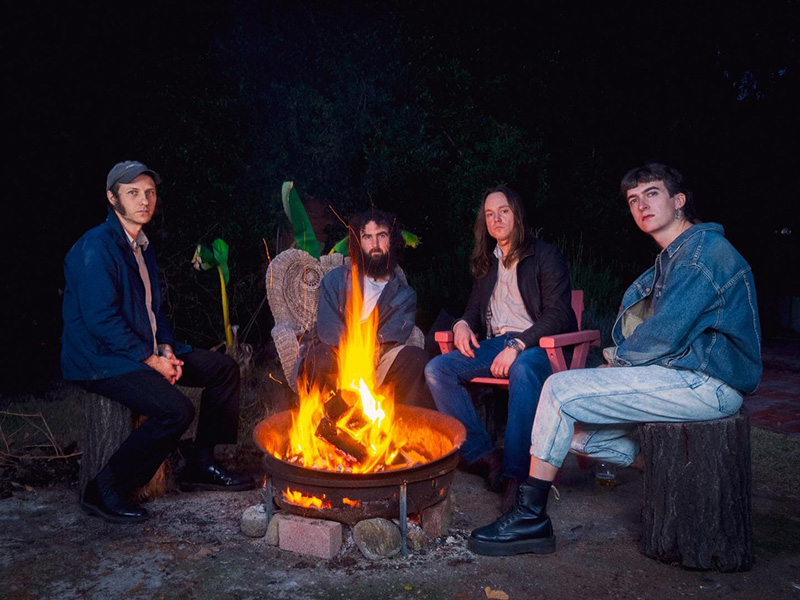
And I think the same is true for her. Obviously, there are a few moments where we're singing and the lyrics there are a bit different. They're very, very direct. It's a very different choice to make when you're singing something versus screaming it, in terms of what the lyrics do. And then, in terms of the spiritual side of it, you know, I think you asked, do you believe in a true self or something like that? Maybe that would be different depending on who you asked in the band. There is no unified spiritual practice in the band at all, and it's not even something we really talk about, actually, which is funny. We call ourselves a spiritual project, and I think we are, but we're certainly not a religious project, even though I'm probably, by a significant margin, the most or maybe the only religious member of the band as a practicing Zen Buddhist. But I don't know if anyone else in the band has any religious practice necessarily, but everybody has their own spiritual practice. We just don't talk about it as spirituality tends to be kind of a boring topic amongst friends most of the time. It's obviously a primary belief in Zen Buddhism that there is no self. That's like one of the main things. But I don't know if everybody in the band agrees with that.
Yeah, it's a question directed at you two right now.
D: So for me, yes, of course, there isn’t. But it's just important to notice that there is no dogma on the record. I guess that's what I'm getting at, you know?
Okay, thank you. Leah, it's your turn now.
L: Yeah, I definitely agree with a lot of what Dan was saying. Some of the things I'm talking about on the record are queerness, transness, and things like that, and when we talk about those broadly, the discourse around them has definitely swayed at different times towards rigid ideas of self and identity and categorization and fixed understanding. My feeling about that is that's often a political strategy or formation. It’s so we can justify our needs for rights on the basis that we’re sharing this fixed category of identity that we can all point to and say is essential or innate to us or something like that. And you know, people do feel that in different ways. I'm speaking from my own experience here, but I think that is the usefulness of talking about those things in terms of identity and self.
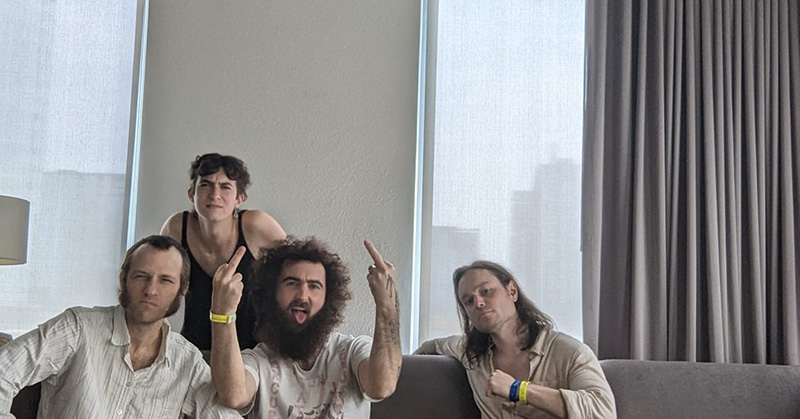
But I will say my own experience of gender, sexuality, personhood, et cetera, is an experience of fluidity that really negates any true sense of there being some essential self I'm trying to reach. I see my personhood as always moldable, changing. And the terms I use to describe that are socially constructed terms, that are only meaningful in as much as we all understand what they mean. So, to me, part of my experience of spirituality does have to do with just "being", finding a sense of presence with whatever there is in this body at any given moment. Whatever is going on with my body and mind and being there at present and being able to move away from certain narratives that I've built, which are what I more identify as an idea of self. I think "self", when we talk about it, has a lot to do with the narratives and the stories we tell about who we are and whatnot. My experience of spirituality has to do with letting go of those narratives a bit and the methods I can find to do that.
Music is there and it’s open for whatever people want to do with it
Okay, guys, these answers have so much insight and I'm glad I asked you this question, really. And also this takes me to something else that I feel like these topics of fluidity, inclusivity and needs and human rights have been absent in black metal for quite a long time and only recently we have this huge surfacing of bands that bring these topics again on the table, at least as far as I know. I want to ask you if you believe that black metal can be reappropriated through acts like yours with a queer background, with perhaps RABM background and their respective scenes. Do you feel like black metal is expanding, is it reappropriated?
L: I think it's there for the taking (laughs). When you talk about aesthetics and style and genre, those things will always have their associations. But that doesn't mean they're bound to those associations, and they can always be used towards different means, whether it's reappropriating or reclaiming or expanding what that genre does. That's something you can look at after the fact of art making. But in doing it, this is a sound that is useful to us, is inspiring to us, is something we want to work with. And I think it's there for that.
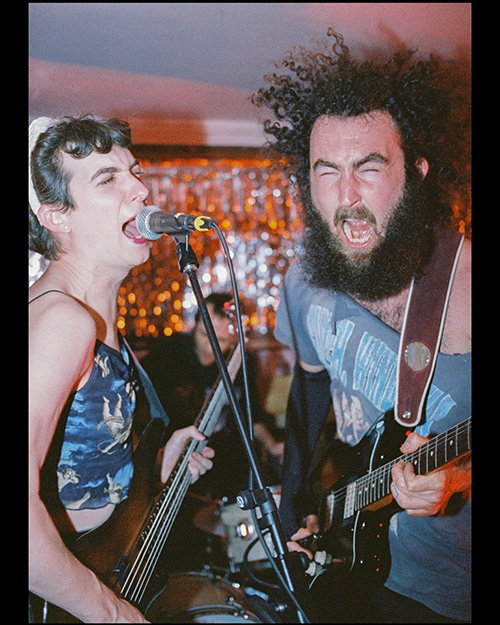
There’re so many genres like this, like country music for instance. One of my favorite albums is by the band Lavender Country, this all-gay country band from San Francisco in the ‘70s. And they just did a folk country record, where they just sang about the things they wanted to sing about. And it's powerful to listen to because of the time it was out, but also because of how by-the-books country it is. It is a country record, you know? There's something great about the fact that we can do that, the music's there and it's open for whatever people want to do with it.
Going viral isn’t the most important thing
Daniel, is there anything you'd like to add?
D: Yeah, one of the cool things about metal in general is happening across the musical landscape right now. I'm not sure if this is true, but this is my sense, that there's an adjustment period happening right now, where people have figured out how music works in a digital ecosystem, in a way that was maybe really confusing for a long time. The novelty of virality. We've seen at this point how the life cycle of a viral act works. A lot of things that were really stressed in music for a long time, which is like, easy to categorize, straightforward, genre-based expression, is maybe starting to dissipate a little bit, because we've been so saturated by it. Everybody kind of knows now that going viral isn’t much. It's not nothing, but it's not necessarily the most important thing and doesn't necessarily lead to a sustainable music career.
What that means to me is that we're seeing a lot of more challenging music that's getting really popular – even so far this year. Not just in the metal space, where a lot of boundaries are being broken, but also across indie rock and hip hop and broadly the popular music spectrum, which is really exciting. In black metal specifically, there is a sense that, yeah, you can just do whatever you want. There's an explosion of especially trans black metal bands that's really, really exciting for us to see and it feels like every time we play at a small metal festival, there's some band that we've never heard of before that's doing something really exciting and weird.
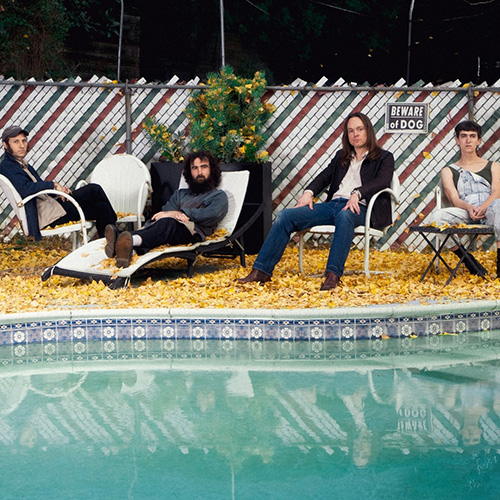
And, at this point, it has very little to do with the traditions of black metal. It's interesting because the second wave of black metal is so iconic, like, literally they look like icons. There's such an aesthetic to it that we get really stuck on it sometimes culturally because of how compelling they are basically, for example the Darkthrone covers, that we forget that there's been people doing interesting stuff with that music for quite some time. It feels like there's an exciting moment right now. I tend to feel things strongly and then realize I was wrong later, so that's probably what's happening here, but I feel more excited about music now than I have for a really long time. It feels like there's some really, really cool, cool stuff happening right now.
It's very interesting that you say this because many people are disengaged with how the digital marketing of music works and now everyone feels like they have to feed the algorithm and so they have to be marketable and so they have to be put in a box. But you bring a whole new point of view on that.
D: That's true, but I don't know if you saw the press release we wrote, but we were specifically like, this doesn't work that way. None of this music is going to go viral. It just doesn't work that way. Now that I've said that, maybe it will, and we'll all become millionaires. But it's not, because you can't just say, you know, "This black metal band is taking the music to a new place by embracing their queer identity!". You know what I mean? It's not, because we don't sound like "Darkthrone but gay", or whatever. The algorithm rewards something that's a slight spin on something that people are already familiar with. That’s not exactly what we're doing. I think we wanted to stand up, get ahead of that a little bit and say, that's not what we're doing here. But again, I really feel like a lot of bands are doing this now, and I think that the music industry is adjusting to things. Yeah, there's the Spotify-core, the new easy listening stuff that makes money, but then there's also an audience hungry for something that pushes a little bit.

We’re really pressed by the time now, unfortunately. I could go on with questions and listen to you two speak for hours, but we only have a minute left. I don't know if there's any last comment that you would like to make before we close this interview.
L: Really appreciate this interview. These are great questions. Hopefully, yeah, we'd love to chat again next time.
D: We got to come to Greece, dude. I want to go so bad.
If you do come, you'll find me in the first row. Ηopefully it's going to be soon, sooner or later.
D: Awesome. Thank you, Manos. Really appreciate it.
Thank you too. Have a great night, bye.

